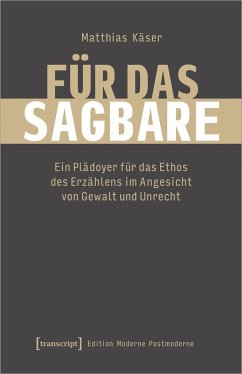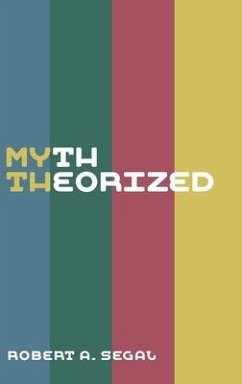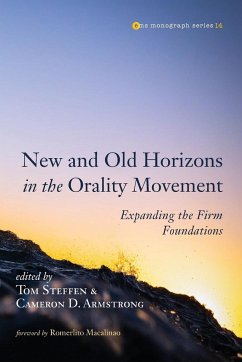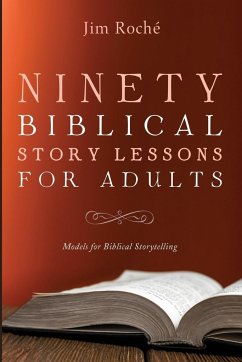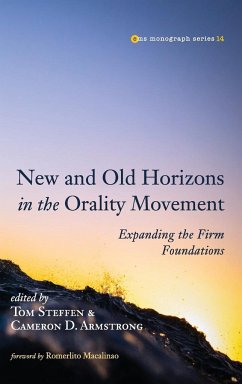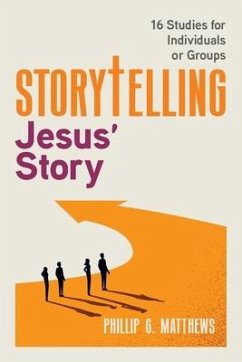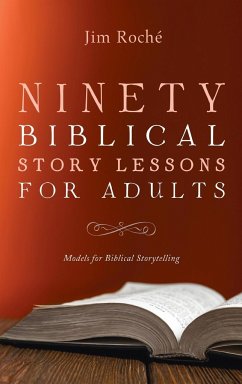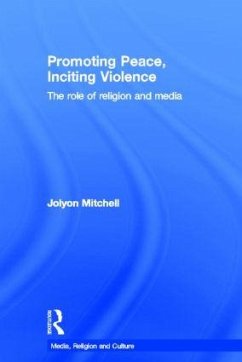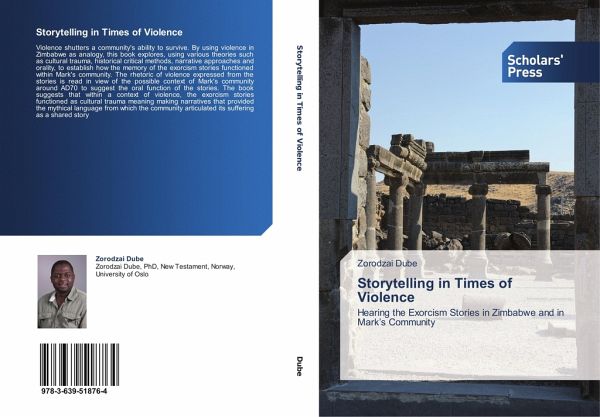
Storytelling in Times of Violence
Hearing the Exorcism Stories in Zimbabwe and in Mark's Community
Versandkostenfrei!
Versandfertig in 1-2 Wochen
65,99 €
inkl. MwSt.

PAYBACK Punkte
33 °P sammeln!
Violence shutters a community's ability to survive. By using violence in Zimbabwe as analogy, this book explores, using various theories such as cultural trauma, historical critical methods, narrative approaches and orality, to establish how the memory of the exorcism stories functioned within Mark's community. The rhetoric of violence expressed from the stories is read in view of the possible context of Mark's community around AD70 to suggest the oral function of the stories. The book suggests that within a context of violence, the exorcism stories functioned as cultural trauma meaning making...
Violence shutters a community's ability to survive. By using violence in Zimbabwe as analogy, this book explores, using various theories such as cultural trauma, historical critical methods, narrative approaches and orality, to establish how the memory of the exorcism stories functioned within Mark's community. The rhetoric of violence expressed from the stories is read in view of the possible context of Mark's community around AD70 to suggest the oral function of the stories. The book suggests that within a context of violence, the exorcism stories functioned as cultural trauma meaning making narratives that provided the mythical language from which the community articulated its suffering as a shared story



